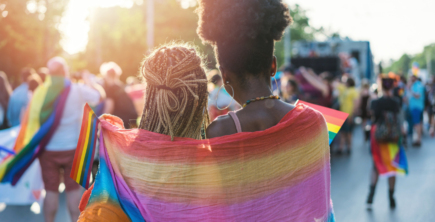
LGBT
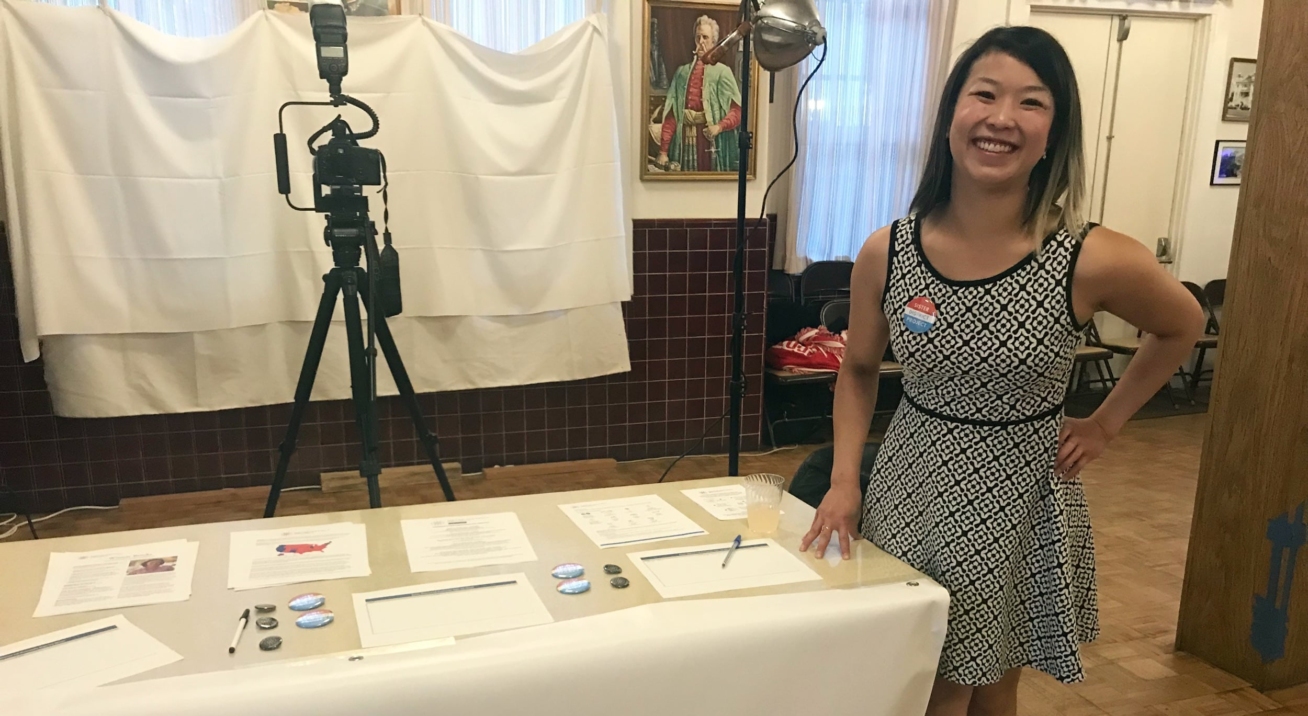
In 2016, Lala Wu, the executive director of Sister District, was working as a lawyer in the Bay Area, counseling clean energy clients on environmental and regulatory matters. It was edifying work that Wu enjoyed, but seeing the panic that was spreading among the social justice community nationwide that year, Wu and four other women decided they wanted to figure out a way to make civic engagement a more permanent part of their lives and ours.
“We saw that there was this tremendous gap in organizing and attention to civic engagement at the state legislative level,” Wu says. “So that’s how Sister District started.”
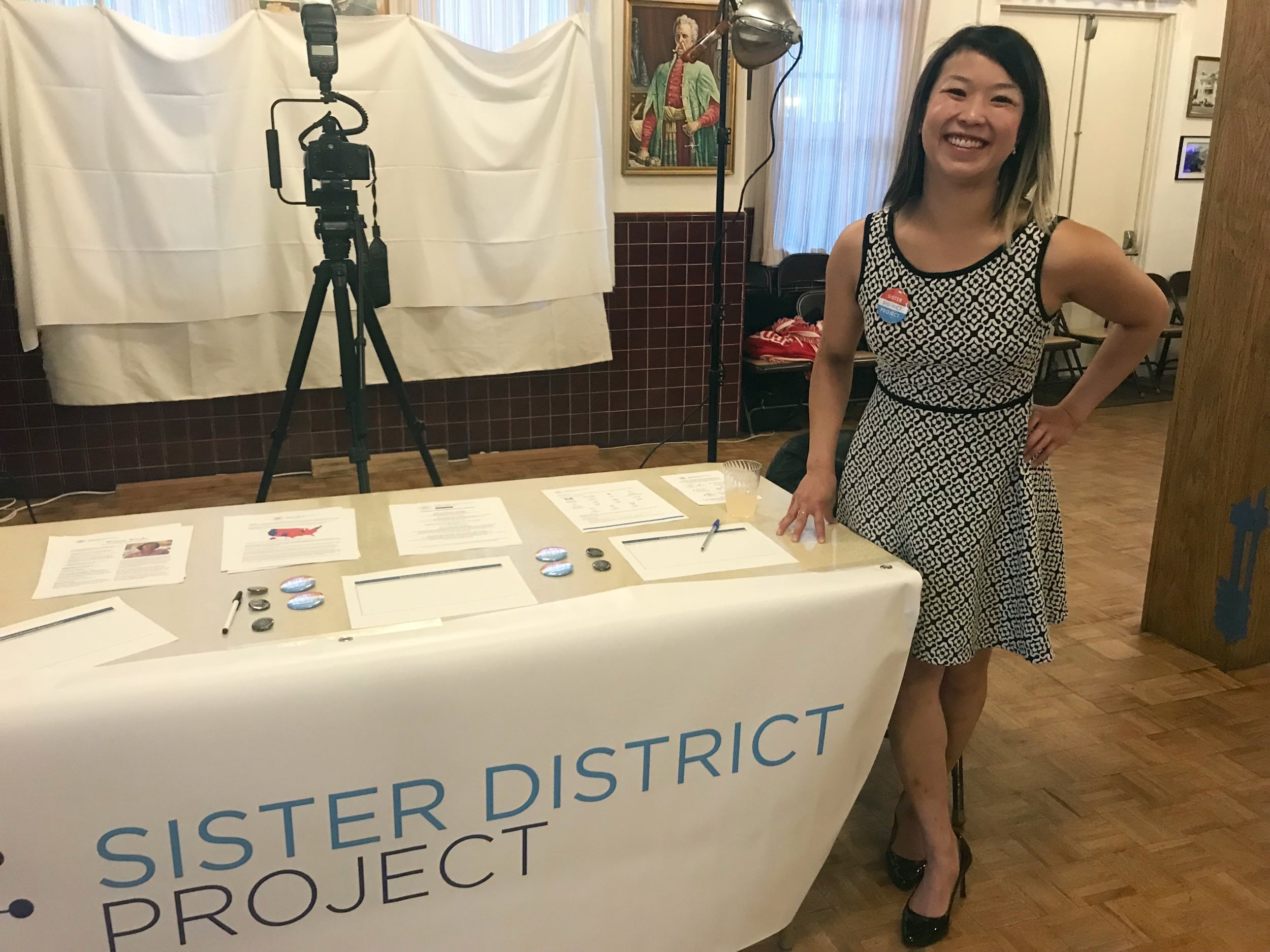
Lala Wu, executive director of Sister District, at an event in San Francisco, CA.
Sister District is a grassroots organization that builds progressive power by engaging the populace — particularly women at the state level — toward the goal of building and supporting state legislatures that will work to improve the lives of as many people as possible.
But in 2016, Wu and her co-founders were, as she says, “mostly strangers, mostly attorneys, and met just by happenstance. We came together around this idea of connecting resources where they are most needed.” They founded Sister District originally focusing on various elections, but, Wu says, they soon also saw the need for more civic education and engagement as an essential part of a true democracy.
Wu became the organization’s executive director in 2021, taking over for another co-founder who stepped down to spend more time with her family and to practice law. When Wu took the helm, she was the first woman of color to lead the organization, and she was energized by the moment as she felt a true democracy was rising: “We were fresh off the entire country making its voice heard, especially young people, and women, and people of color, and really seeing some incredible engagement and results because of that. We are working to continue those trends as we head into this next presidential election cycle.”
In partnership with the Sister District Action Network, in 2023, Tides Foundation established the Sister District Education Fund to support Sister District’s education initiative engaging in state-level programming and research that supports the strengthening of American democracy. The education initiative focuses on narrative change in storytelling about the power and promise of states. While all the programming is carried out by Sister District staff, they also work with state and national organizations that are interested in nonpartisan research.
The narrative change and storytelling approach is currently three-pronged: The first prong involves reaching the public, including the young women who are coming of age as voters and activists, as they see it as a prime time to ensure that these nascent voters become lifelong civic participants. Working with Teen Vogue, the education initiative is drawing these young women in with articles about historic firsts on the state legislature level.
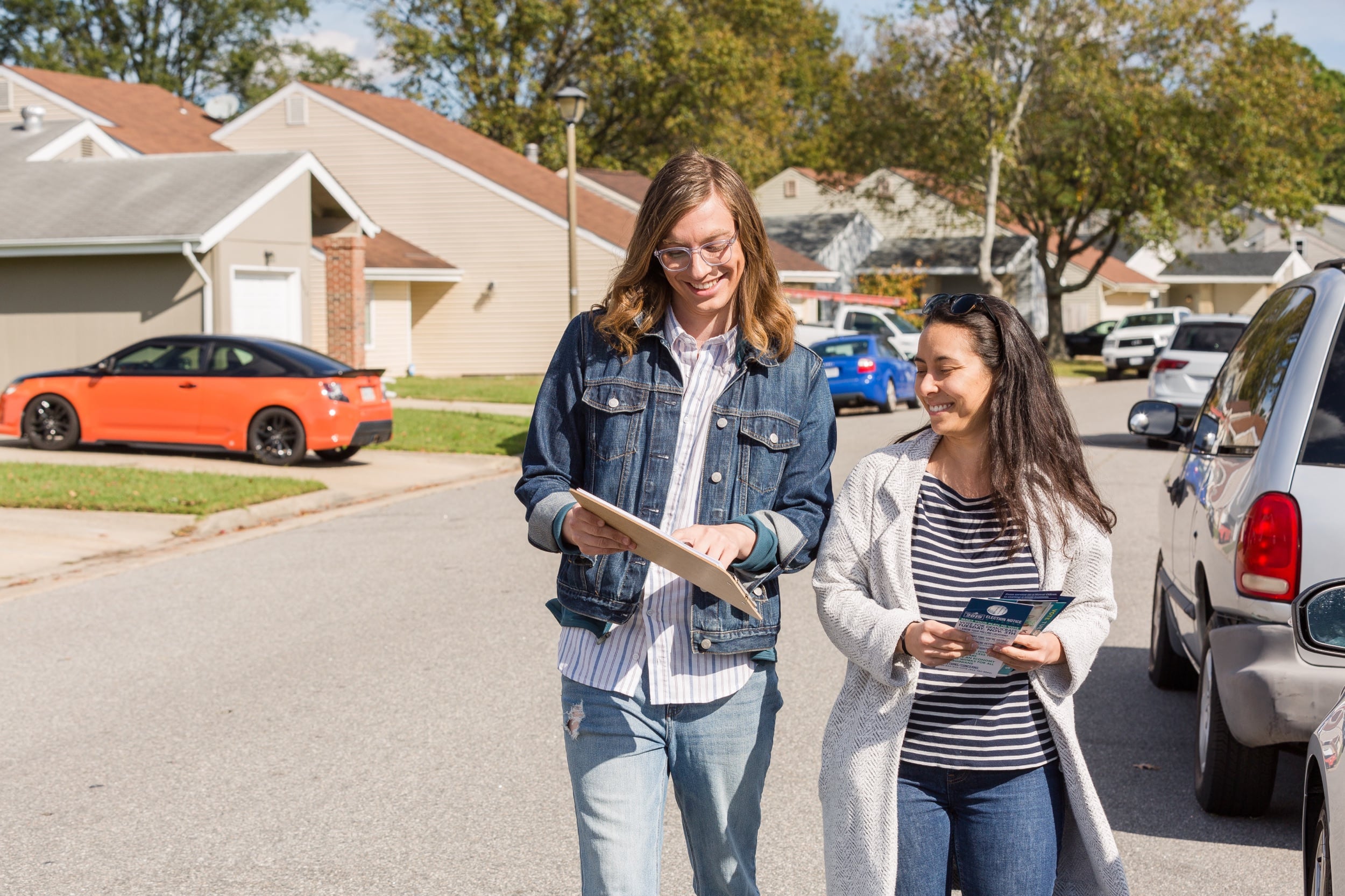
Sister District volunteers canvassing.
“We’ve told the stories of the first formerly incarcerated state legislator, the first Black legislator, the first gender-nonconforming Chicanx legislator, in their states,” Wu says. But, she emphasizes, “We are not just writing about their breaking ground, we are focusing on why representation in these roles is so important.”
Wu points out the effect in Nevada when, in 2019, it became the first state in the nation to have a legislature with women in the majority with 52 percent women. The Nevada legislature worked together to pass acts mandating paid leave, a pay equity requirement and other bills, Wu says, that benefited families and improved lives in general. Nevadans seem to agree that lives were improved across the board with women in the majority, as the proportion of women in the state legislature has continued to grow: In 2021, 60 percent were women, and in 2023, 62 percent of the legislators are women.
The second prong of the narrative change centers on thought leadership in partnership with such organizations as the Roosevelt Institute. Currently, Wu says, they are co-authoring a white paper with the Roosevelt Institute about the key role state legislatures have to play, “as we imagine a new progressive economy that works for all of us.”
The third piece of the narrative change in the storytelling initiative is centered on message development. Wu cites what she calls the “hidden turnout problem,” focusing on people who vote for candidates for federal office, but leave state offices and state referenda unselected on the same ballot. “There’s actually a remarkable number of people that do that. They start and they vote for the president, maybe the Senate, maybe Congress, and then they leave the rest blank,” Wu says. “What are the resonant messages that are going to help large numbers of people and voters understand the importance of what happens at the state level?”
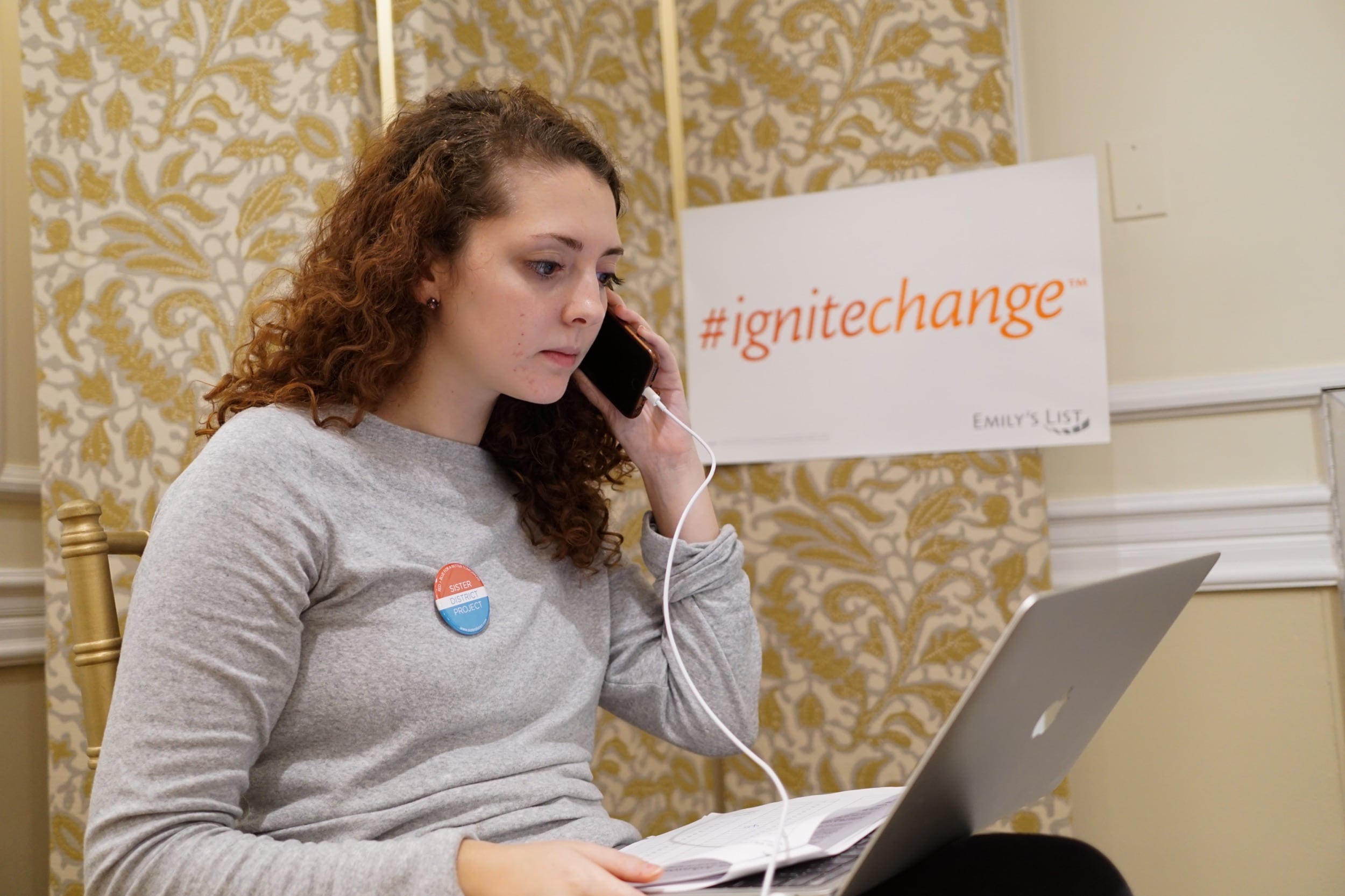
Sister District volunteer working at a phone banking event in Washington, DC.
Sister District is currently conducting baseline research through focus groups and surveys to better understand the problem. This is a natural extension of their existing robust research program, which has partnered with organizations such as the Mississippi NAACP, Virginia Tech University, and the University of Michigan. Some of Sister District’s past work has included testing the effect on voter turnout of handwritten postcards that welcome newly registered teenage voters of color and provide them with information about the upcoming election; and whether one-time volunteers who are informed about the effect of various specific volunteer activities are prompted to engage in more high-stakes volunteer activities.
While Wu and her four co-founders were all based in the Bay Area, state legislatures, of course, span the nation. Wu says that she respects and enjoys the differences in various parts of the country, but through her work with Sister District she has come to believe more than ever that the ties that bind us stretch from coast to coast and across state lines.
“This country is an amazing place because every state is different and every region is different. It’s really important to us to follow the lead of our local leaders and the volunteers we have on the ground, as well as the community partners and legislators,” Wu says. “There’s such an incredible array of differences and diversity, and at the same time, there are a lot of themes that hold us together and shared values that we can all get behind. It’s these shared values and this shared vision that really animate the work that we do.”

LGBT
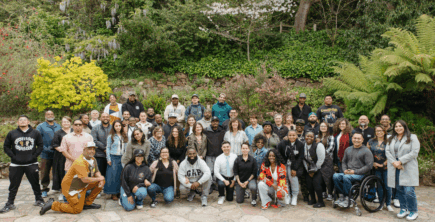
Corporate Partners

Philanthropy

Read the stories and hear the voices of social change leaders fighting for justice.